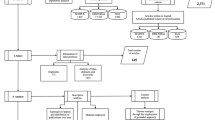Abstract
Son of a North German businessman, Thomas Mann chose as theme for his early narrative work the conflict between the standards and values of business and those of the artist-writer.Buddenbrooks andTonio Kröger exhibit the tension of values in opposite ways. InThe Magic Mountain, Mann expands his canvas to include military as well as business values in their relation to the creative potential in a young engineer who exiles himself to an Alpine tuberculosis sanatorium to enjoy a unique educational experience. Mann believed that the businessman, like the artist, had a light and dark side, committed by the Protestant ethic, yet bound to entrepreneurial standards of utility and profit. On that account, the businessman, like the creative artist, may experience a certain alientation from ‘Life’.
Similar content being viewed by others
Author information
Authors and Affiliations
Additional information
Joseph Gerard Brennan is Professor emeritus at Barnard College, Columbia University and at present Electives Professor and Academic Advisor at the Naval command College and Naval War College at Newport, Rhode Island. He published six books includingEthics and Morals and The Education of a Prejudiced Man.
Rights and permissions
About this article
Cite this article
Brennan, J.G. Thomas mann and the business ethic. J Bus Ethics 4, 401–407 (1985). https://doi.org/10.1007/BF02388594
Issue Date:
DOI: https://doi.org/10.1007/BF02388594




